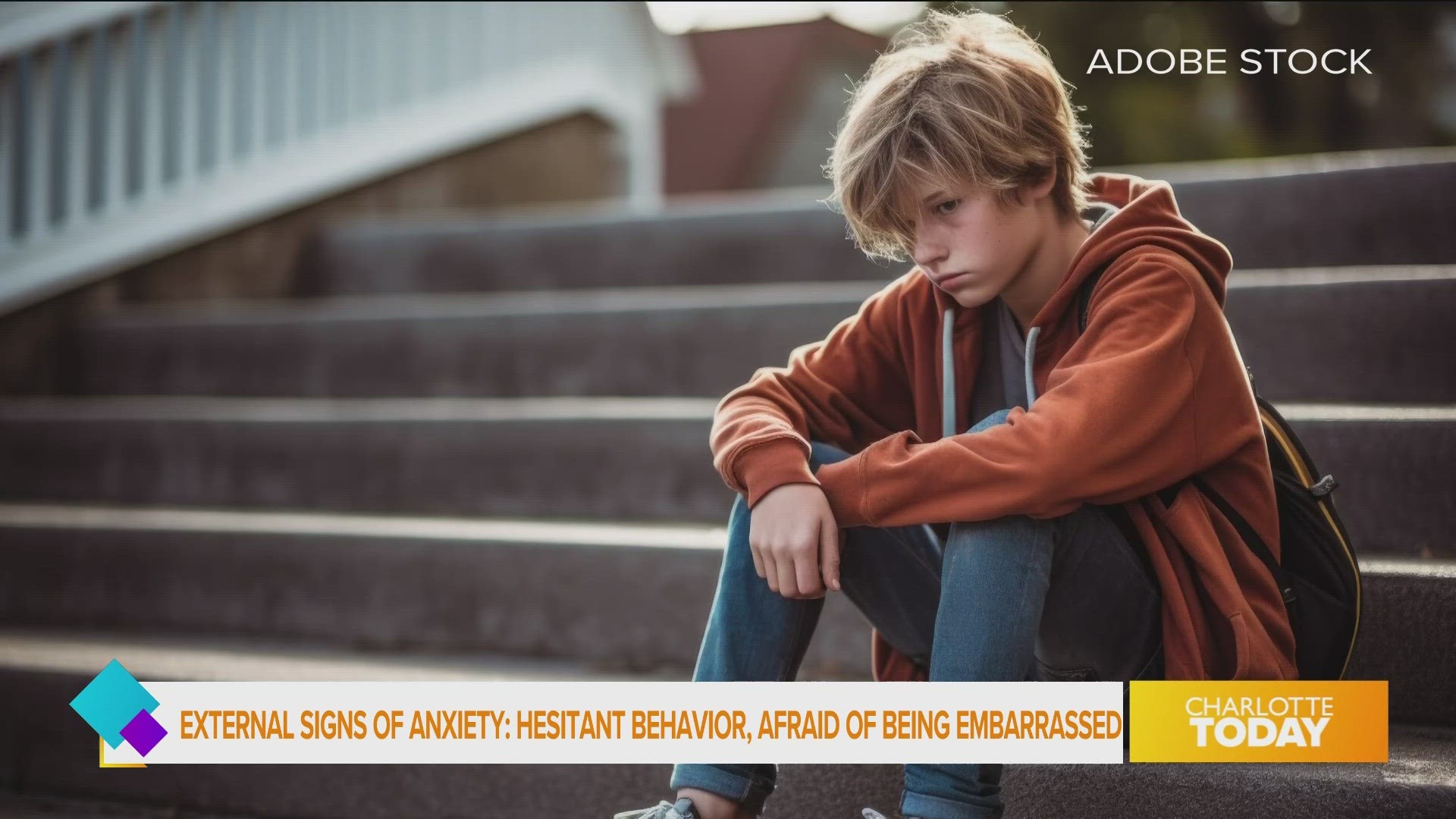CHARLOTTE, N.C. — Today we are talking about a debilitating subject that can really impact kids and that is Social Anxiety. Here with more is licensed therapist, Chris McCarthy from Carolinas Counseling Group. He says, "we all fight anxiety and the stresses of life on a daily basis, but when we add in the social components things can go downhill fast. Anxiety is the #1 diagnosis that health professional like myself face” says McCarthy.
In social anxiety disorder, everyday interactions cause significant anxiety and embarrassment because of the fear of being judged negatively by others. Subsequently, that spill over into avoidance of any social activities. Symptoms include: intense fear of interacting with strangers, and can paralyze a child and lead to more issues. Children experiencing social anxiety may experience many symptoms.
Most commonly observed symptoms include:
Marked fear or anxiety in one or more social situations
Excessive blushing
Rapid speech
Fear of being judged by others
Saying something then feeling embarrassed / humiliated later
Trembling
Palpitations
Uncomfortable to meet new people
Paying very high attention after an activity
Excessive sweating
We also learned from McCarthy: with the advent of social media and a pandemic, social anxiety has gone up significantly in children. The constant comparison of social media and the confining restrictions and new way of learning online only contributed to the anxiety being felt by kids over these past years. When the pandemic was over kids were asked to engage again, and socialize and that was a hard ask for many kids. “Internally kids with social anxiety are very nervous and they second guess themselves and don’t trust others either” says McCarthy. .
But there is hope! He continues “parents can be a source of encouragement for their child. Parents can also expose their kids to more social outlets, encouraging them to participate in events like: sports, social gatherings, parties and more, it’s called Exposure Therapy.” Exposure therapy is a psychological treatment that helps people confront their fears by exposing them to the things they fear and avoid. It can be used for phobias, panic disorder and social anxiety disorder. The more kids are exposed to good stimuli the more they can adjust to their social environments. For more information visit CarolinasCounseling.info

